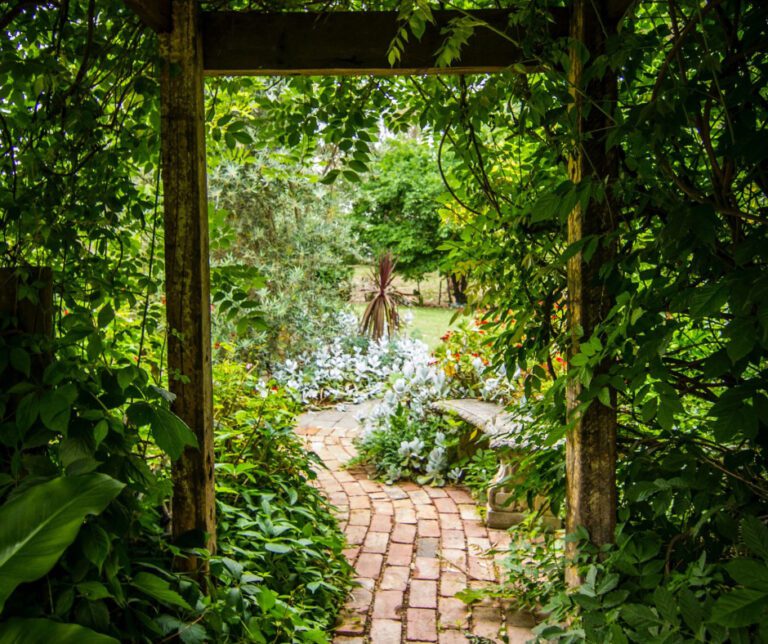Growing Together: Cultivating Community Through Urban Bamboo Gardens

Community bamboo gardens serve as valuable green spaces that not only bring communities together but also promote sustainable practices. These gardens play a crucial role in urban agriculture by providing fresh produce and educational opportunities for residents. Beyond functionality, the aesthetic value of bamboo plants enhances the visual appeal of small urban spaces, contributing to environmental conservation efforts.
When considering the creation of a community bamboo garden in a small urban space, it is essential to recognize the manifold benefits it can bring to the community. By fostering a sense of ownership and pride among residents, these gardens promote a collaborative spirit and a shared responsibility for the environment. Additionally, they serve as platforms for intergenerational learning and knowledge sharing about gardening and sustainable living practices.
Planning and Designing a Community Bamboo Garden
Creating a community bamboo garden in a limited urban space requires meticulous planning to maximize both the functionality and aesthetics of the garden. Incorporating elements such as raised beds and vertical planting structures can effectively optimize the use of space and allow for a diverse range of bamboo species to thrive. The selection of bamboo species based on their growth characteristics and visual appeal is crucial for the success and sustainability of the garden.
When designing a small bamboo garden, utilizing raised beds can help create defined growing areas while maximizing space efficiency. By carefully selecting bamboo species known for their clumping growth habit rather than invasive spreading, the garden can flourish without encroaching on neighboring areas.
Benefits of Community Bamboo Gardens
The benefits of community bamboo gardens extend far beyond just aesthetics. These green spaces offer a sense of community ownership and pride, fostering a collaborative environment that brings residents together. Furthermore, they provide opportunities for intergenerational learning and knowledge sharing about gardening and sustainable living practices, creating a more informed and connected community. Engaging in community bamboo garden projects can also lead to improved mental well-being and a stronger sense of belonging for all participants.
For example, a community that comes together to maintain a bamboo garden not only reaps the physical rewards of fresh produce but also experiences the intangible benefits of shared experiences, increased social interaction, and a sense of accomplishment. This sense of community ownership and pride can strengthen social bonds and create a more cohesive neighborhood.
Sustainable Practices for Maintaining a Community Bamboo Garden
Implementing sustainable practices is essential for the long-term health and vitality of a community bamboo garden. Techniques such as composting systems and rainwater harvesting can enhance the garden’s sustainability by reducing waste and conserving water. Introducing native plant species alongside bamboo can promote biodiversity and attract beneficial insects, creating a more resilient ecosystem within the garden. Regular maintenance tasks like pruning and mulching are also crucial for preserving the health and beauty of the bamboo garden.
Setting up a composting system in the community garden can help recycle organic waste from the garden and nearby households, providing nutrient-rich soil amendments for the bamboo and other plants. Additionally, rainwater harvesting can reduce the reliance on municipal water sources, contributing to water conservation efforts and promoting self-sufficiency within the garden.
Visual Design and Ornamental Features of Bamboo
The visual appeal of bamboo plants is a key aspect of designing a captivating community bamboo garden. Bamboo’s diverse ornamental features, including variegated leaves and colorful stems, can enhance the aesthetic appeal of the garden and create visual interest. By incorporating bamboo varieties with different heights and textures, gardeners can introduce depth and dimension to the garden landscape, making it more visually engaging. Understanding the visual preferences of the community members can guide the selection and arrangement of bamboo plants to maximize the overall aesthetic impact of the garden.
Planting bamboo varieties with contrasting leaf colors or stem patterns can create a visually dynamic display within the garden. Mixing tall and short bamboo species strategically can also add layers to the garden design, enhancing its overall visual appeal and creating a more immersive experience for visitors.
Engaging the Community in Sustainable Gardening Practices
Engaging the local community in the maintenance and care of the bamboo garden is vital for its long-term success. Involving residents in garden tasks such as weeding, watering schedules, and plant maintenance fosters a sense of shared responsibility and ownership. Hosting educational workshops and gardening demonstrations can empower community members with the knowledge and skills needed to contribute effectively to the garden’s upkeep. Celebrating harvest festivals and garden-themed events not only strengthens social bonds within the community but also highlights the rewards of collective gardening efforts.
Organizing community workdays where residents come together to participate in garden maintenance tasks can create a sense of camaraderie and shared purpose. Educational workshops on sustainable gardening practices can equip community members with valuable skills and knowledge, empowering them to take an active role in caring for the bamboo garden and promoting environmental stewardship.
Few plants offer the strength and beauty that bamboo does. It is truly a plant of emmaculate design.
Learn More about the uses for bambooWe are dedicated to the promotion and use of bamboo throughout the world. Bamboo is a plant that offers limitless potential for the future. It offers us strength, sustainability, versatility, and a green alternative.
Bamboo Grove on Twitter
Bamboo Grove YouTube Channel
Moline, IL
info@bamboogrove.com